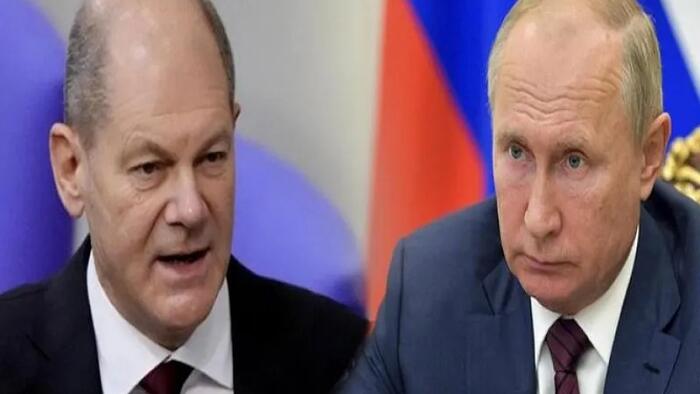In a recent analysis of Russian President Vladimir Putin’s diplomatic maneuvering, Andrew Korybko highlights a significant conversation between Putin and German Chancellor Olaf Scholz. This marks the first call between the two leaders in two years, described by Ukrainian President Volodymyr Zelensky as a moment that “opened Pandora’s Box.” The discussion underscored a substantial shift in Russia’s diplomatic stance, particularly regarding energy diplomacy as it relates to Germany’s strategic decisions in the ongoing Ukraine conflict. Putin suggested that the last undamaged section of the Nord Stream pipelines could quickly resume operations if Germany alters its support for Ukraine, particularly in light of former President Donald Trump’s aggressive posturing aimed at forcing a resolution to the conflict on favorable terms for the U.S.
During their conversation, Putin emphasized Russia’s commitment to honoring its energy agreements while calling on Germany to collaborate more closely with Moscow. The Russian leader’s assertion that the operational segment of the Nord Stream 2 pipeline could be activated at any moment pointed to an undercurrent of urgency. The European energy landscape has shifted significantly since Germany curtailed reliance on Russian energy exports following the invasion of Ukraine, resulting in economic pressures and a looming recession for Germany. The transition to purchasing significantly more expensive liquefied natural gas (LNG) from the U.S. has exacerbated these economic challenges, highlighting the potential mutual benefits of reinstating Russian energy supplies.
As Germany navigates its position as a principal donor to Ukraine, it finds itself in a crucial geopolitical position—balancing support for a war effort while managing domestic economic realities. The economic slowdown and mounting costs faced by Germany raise questions about the sustainability of its current policy. Korybko highlights that Germany now holds more sway over Ukraine than any other European ally aside from the U.S. and possibly the U.K., marking its influence as pivotal in potentially reshaping the dynamics of Western support for Ukraine. As Trump appears poised to engage in an “escalate to de-escalate” strategy, there exists a significant incentive for Putin to persuade Scholz to reconsider Germany’s commitment to Ukraine’s military and financial support.
Putin’s operatic overture prompts a reconsideration of the potential for a diplomatic resolution that could involve scaling back Western military aid to Ukraine in exchange for resuming Russian energy supplies. Such a shift could trigger a domino effect among other European allies. If Germany were to lead this recalibration of support, it could encourage neighboring countries to follow suit, thereby significantly altering the Western response and potentially undermining Trump’s agenda. An early pushback from Western Europe against U.S. directives might forestall aggressive escalation and open pathways for negotiation with Russia—actions that would hinge upon Germany’s strategic calculations.
This timing is critical for Russia, as Korybko notes the urgency with which Putin approached Scholz. Achieving maximum goals in the ongoing conflict before any significant changes in U.S. foreign policy or aggressive posturing from Trump becomes apparent is paramount. The call underscores a pivotal moment wherein the dynamics of energy cooperation and geopolitical strategy intersect distinctly. While Scholz might ultimately reject Putin’s overture due to fears of backlash from the U.S. or internal political pressures, the mere fact of the dialogue signals a shift in the willingness of Russia to engage in diplomacy with Western leaders regarding matters of strategic importance.
In summation, the re-engagement between Putin and Scholz is not merely a trivial diplomatic encounter, but rather a reflection of shifting geopolitical tides. Korybko encapsulates the essence of the interaction as one that reveals both the complexities of the current energy landscape and the interconnected realities of international diplomacy. As Europe grapples with rising energy costs, economic stagnation, and the moral imperative of aid to Ukraine, the implications of this dialogue could have reverberating consequences for the conflict, with Germany’s role becoming increasingly central in negotiating potential pathways for resolution.

